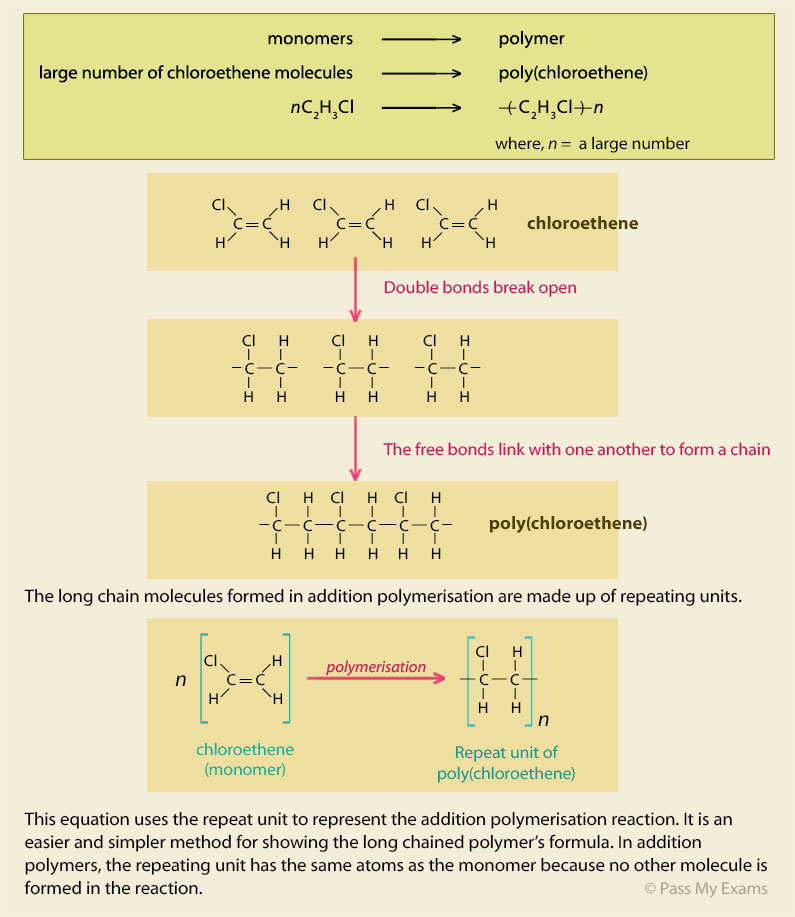Vinyl chloride ch2 chcl is most often obtained by reacting ethylene with oxygen and hydrogen chloride over a copper catalyst.
Example of a polymer of vinyl chloride.
Pvc is used in the manufacture of numerous products including packaging films and water pipes.
Major industrial polymers major industrial polymers polyvinyl chloride pvc.
An industrially important example is vinyl chloride precursor to pvc a plastic.
Vinyl chloride is an organochloride with the formula h 2 c chcl that is also called vinyl chloride monomer vcm or chloroethene this colorless compound is an important industrial chemical chiefly used to produce the polymer polyvinyl chloride pvc.
For example polyvinyl chloride is an industrial homopolymer synthesized from repeating units of vinyl chloride.
Pvc vinyl chloride is an organohalogen compound that has important industrial applications.
A homopolymer is a polymer where every monomer unit mer of the chain is the same.
Their backbone is an extended alkane chain ch 2 chr ch 2 chr.
In chemistry vinyl or ethenyl abbreviated as vi is the functional group with the formula c h ch 2 it is the ethylene iupac ethene molecule h 2 c ch 2 with one fewer hydrogen atom.
When treated with certain catalysts vinyl chloride monomers undergo polymerization and form the larger compound known as polyvinyl chloride or pvc.
In popular usage vinyl refers only to polyvinyl chloride pvc.
Vinyl polymers are the most common type of plastic.
Rigid sometimes abbreviated as rpvc and flexible.
Pvc comes in two basic forms.
Chemical structure of polyvinyl chloride pvc industrial polymers are synthesized from simple compounds joined together to form long chains.
About 13 billion kilograms are produced annually.
Second only to pe in production and consumption pvc is manufactured by bulk solution suspension and emulsion polymerization of vinyl chloride monomer using free radical initiators.
The name is also used for any compound containing that group namely r ch ch 2 where r is any other group of atoms.
Pvc is the world s third most widely produced synthetic plastic polymer after polyethylene and polypropylene about 40 million tons of pvc are produced each year.
5 18 60 61 these polymers have been used extensively in the past for corrosion protective systems but they often need large amounts of strong solvents to be apply properly.

